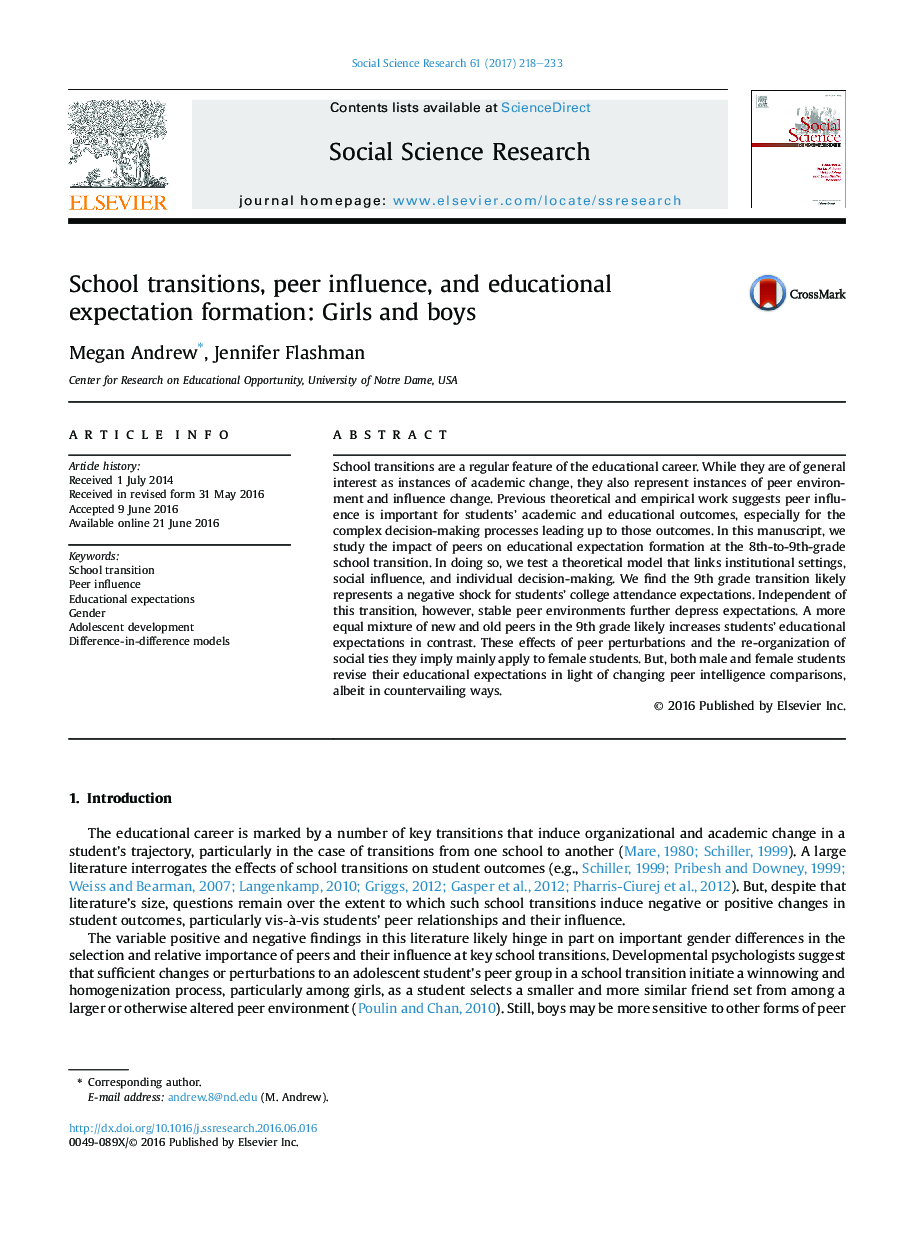| Article ID | Journal | Published Year | Pages | File Type |
|---|---|---|---|---|
| 5047117 | Social Science Research | 2017 | 16 Pages |
School transitions are a regular feature of the educational career. While they are of general interest as instances of academic change, they also represent instances of peer environment and influence change. Previous theoretical and empirical work suggests peer influence is important for students' academic and educational outcomes, especially for the complex decision-making processes leading up to those outcomes. In this manuscript, we study the impact of peers on educational expectation formation at the 8th-to-9th-grade school transition. In doing so, we test a theoretical model that links institutional settings, social influence, and individual decision-making. We find the 9th grade transition likely represents a negative shock for students' college attendance expectations. Independent of this transition, however, stable peer environments further depress expectations. A more equal mixture of new and old peers in the 9th grade likely increases students' educational expectations in contrast. These effects of peer perturbations and the re-organization of social ties they imply mainly apply to female students. But, both male and female students revise their educational expectations in light of changing peer intelligence comparisons, albeit in countervailing ways.
